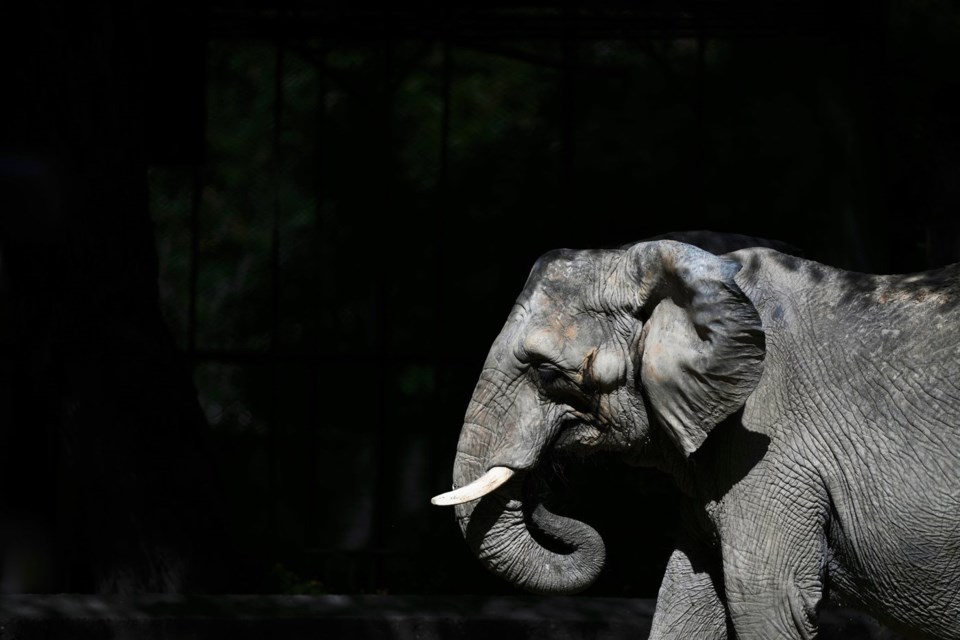BUENOS AIRES, Argentina (AP) — Pupy the elephant arrived at her new home in a sanctuary in Mato Grosso, Brazil, Friday following a 2,700-kilometer (1,680-mile) overland journey from a zoo converted into an ecological park in Argentina’s capital where she had spent 30 years in conditions criticized by activists.
The Buenos Aires mayor’s office said in a statement that the last elephant living in the Argentine city’s “Ecopark” arrived at her destination in Brazil’s Amazon rainforest “in perfect health.”
The 35-year-old African elephant was transported in a large iron crate with thick bars strapped to a truck, a mission for which she had been trained for several months. The truck was flanked by vans filled with caretakers and veterinarians.
Pupy (pronounced POOH’-pee in Spanish) did not require sedation during the five-day journey to Elephant Sanctuary Brazil, the first refuge for elephants in Latin America located in the municipality of Chapadas Dos Guimarães in Mato Gross state, Argentine authorities said.
Upon arriving at the sanctuary, her veterinary escorts opened the door for her, but Pupy was reluctant to leave the iron crate. They said they fed her sugarcane and watermelon, her favorite food, and gave her a bath to refresh her.
Pupy will remain in an outdoor shed while she begins to adapt to her new home, without rushing.
“Everything will happen at her own pace,” said the Buenos Aires mayor’s office.
In 2016, Buenos Aires launched the transformation of its century-old, urban zoo in Palermo neighborhood into an ecological park for the preservation of biodiversity and the conservation of native species.
As part of this process, more than 1,000 animals — including lions, tigers, bears and apes — have been relocated to other countries where they enjoy better living conditions. An emblematic case was that of the orangutan Sandra, who now lives at the Great Ape Center in Wauchula, Florida, where she has adapted and has friends of her own species.
Pupy, who arrived at the Palermo zoo in 1993, is the latest animal transferred from the Buenos Aires ecological park.
Already enjoying the Brazil Elephant Sanctuary are five Asian elephants — including Mara, a former circus elephant that also ended up in the Argentine preserve’s enclosure and five years ago made the same highway trip to the refuge, where she now trudges at least 10 kilometers (6 miles) a day.
Pupy will not be reunited with Mara in her new home, “due to the natural differences between the two species,” officials explained. “The sanctuary is designed to keep the groups separate, respecting their biological and behavioral needs.”
The Buenos Aires “Ecopark” will continue to house animals that, due to age or logistical impossibility, cannot be transferred to another habitat.
The Associated Press




